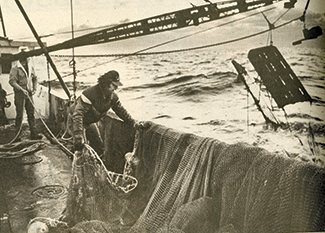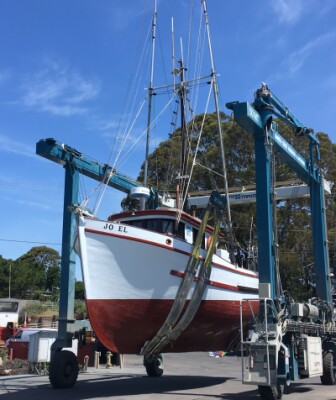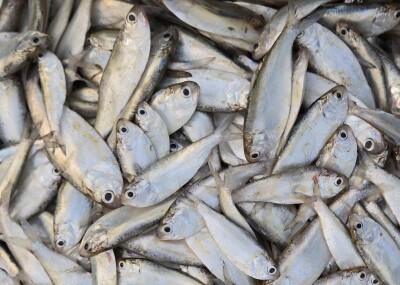When the Gloucester shrimp season kicked off on Dec. 1, 1985, the whiting boats switching over from a late season realized that they had company on their grounds.
At dawn, the crew of the Virginia scalloper Jake O'Neal sends the gear overboard. The boat's twin shrimp nets have proven effective in deep Northern waters. NF file photoTwo 90’ scallopers — the O’Neal’s pride and the Jake O’Neal — had come up from Virginia. O’Neal vessels weren’t completely foreign to Gloucester fishermen; they usually came up for the summer scallop season. But this time was different.
Instead of scallop dredges, they sported southern shrimp gear. Cue the talks of southern invasion. Rumor had it that that the two boats were scouts for another two dozen O’Neal vessels that were looking to switch out of an uncertain scallop fishery.
As you know, fishermen tend to be protective of “their” section of the ocean and outsiders aren’t always welcome.
The O’Neal vessels became the hottest talk of the town. One of the two boats ended up leaving, but the Jake O’Neal stayed put. Locals gave Captain George Jones the silent treatment, his radio calls met with silence most days. It wasn’t rare for him to get the middle finger instead of a hello from passing boats.
Despite debate over whether or not the Jake O’Neal’s southern gear was fit for northern waters, they were landing a respectable amount of shrimp.
National Fisherman Field Editor M.L. Edwards went along with Capt. Jones one day and watched him pull 3,800 pounds of clean shrimp. He was averaging about the same as Gloucester fishermen.
Denny O’Neal, manager of Seaford, Va., shrimp company that owns the fleet said they weren’t going to send any more boats right away.
“I could send another boat or two; I haven’t decided yet,” he said. “I think the resource is there, but we’re just learning the bottom.”
Gloucester fishermen let out a sigh of relief.
Over time, the hostile attitude settled down into one of neutral wariness. After all, most of those Gloucester fishermen troubled by the thought of outsiders had worked off the coast of Maine and Cape May, N.J., where they had been the outsiders.
Always remember where you’ve been and where you might end up next season. You never know when you'll end up in someone else's water.







